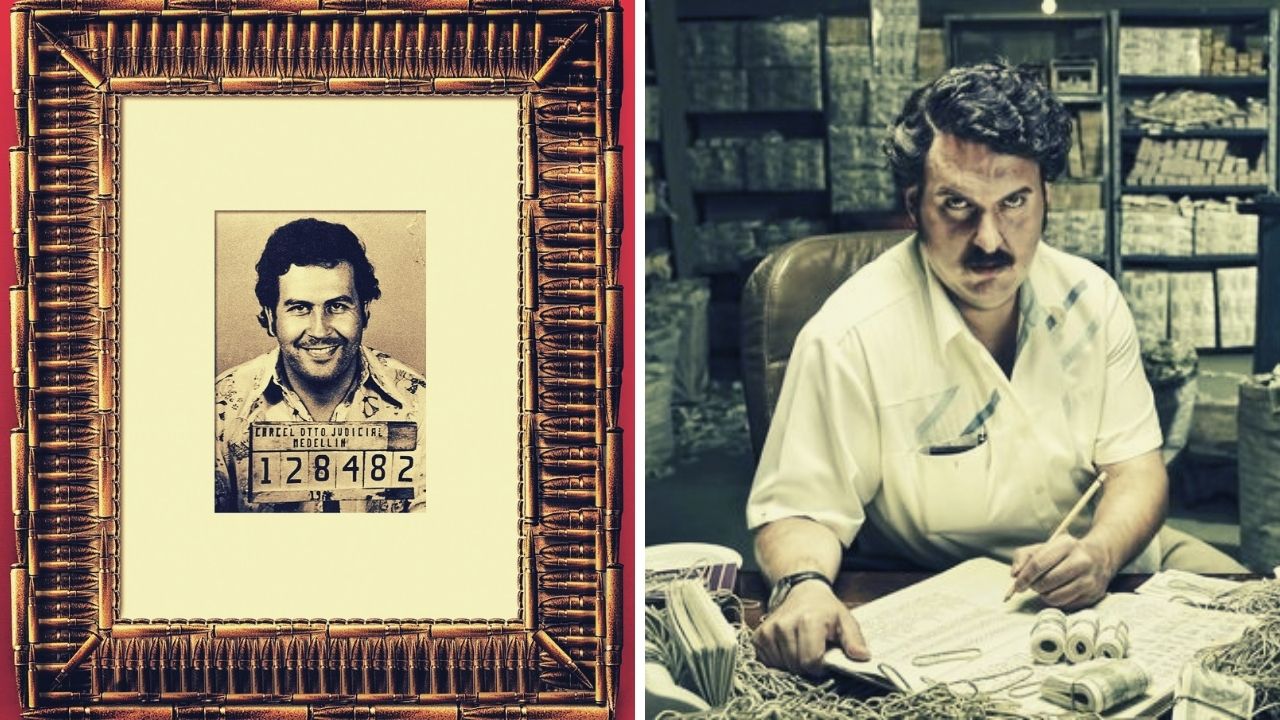How Much Did Escobar Make A Day?
Pablo Escobar, the infamous Colombian drug lord, is often remembered not just for his ruthless tactics and violent reign but also for the staggering wealth he amassed during his criminal empire. His daily income, a subject of fascination and speculation, paints a vivid picture of the extremes of wealth and power. As we delve into the depths of Escobar's financial prowess, we uncover the mechanisms behind his astounding revenue streams and the astronomical figures that defined his existence.
Escobar's empire was built on the illicit drug trade, primarily cocaine, which surged in popularity during the 1980s. At the height of his power, it is estimated that he was making an astonishing amount of money each day. However, understanding how much did Escobar make a day requires insight into the scale of his operations, the logistics of drug trafficking, and the socio-political environment of Colombia during that era. Escobar's wealth was not just about money; it was about influence, fear, and a distorted sense of loyalty among those around him.
In this article, we will explore the various aspects of Escobar's life and wealth, from his early beginnings to the peak of his drug empire. We will answer pressing questions about his daily earnings, his lifestyle, and the impact of his fortune on Colombia and the world. Join us as we unravel the mystery of how much did Escobar make a day and the legacy he left behind.
Who Was Pablo Escobar?
Pablo Emilio Escobar Gaviria was born on December 1, 1949, in Rionegro, Colombia. He became one of the most notorious drug lords in history, leading the Medellín Cartel, which dominated the cocaine trade in the United States during the 1980s and early 1990s. Escobar was known for his strategic intelligence and his ability to evade law enforcement, as well as his philanthropic efforts that endeared him to many Colombians.
What Was Escobar's Early Life Like?
Escobar grew up in a modest family and showed a penchant for entrepreneurship from a young age. He started his criminal career by selling stolen goods and gradually moved into more lucrative ventures, including drug trafficking. His rise to power was marked by a series of calculated moves, including forming alliances with various criminal organizations and corrupting officials.
Personal Details and Bio Data
| Detail | Information |
|---|---|
| Name | Pablo Emilio Escobar Gaviria |
| Date of Birth | December 1, 1949 |
| Place of Birth | Rionegro, Colombia |
| Occupation | Drug Lord, Businessman |
| Death | December 2, 1993 |
How Much Did Escobar Make a Day from His Drug Empire?
At the height of his operations, it is estimated that Escobar made between $30 million to $70 million a day. This staggering figure was derived from the production and distribution of cocaine, which was in high demand in the United States and other countries. The Medellín Cartel was known for its ability to produce vast quantities of cocaine, and Escobar's control over the supply chain allowed him to maximize profits.
What Factors Contributed to Escobar's Wealth?
Several factors played a crucial role in Escobar's immense wealth:
- Volume of Production: The Medellín Cartel was one of the largest cocaine producers, with high-quality products that commanded premium prices.
- Distribution Networks: Escobar had a sophisticated distribution network that allowed him to reach markets across the globe.
- Corruption: Escobar invested heavily in bribing law enforcement and government officials, ensuring protection and facilitating operations.
- Real Estate Investments: He diversified his investments into legitimate businesses and real estate, further increasing his wealth.
Was His Wealth Visible in His Lifestyle?
Escobar's wealth was not only astronomical but also extravagant. His lifestyle included lavish mansions, luxury cars, and private jets. He was known for throwing extravagant parties and living a life of opulence that few could fathom. However, this lifestyle also came with significant risks, as it attracted law enforcement attention and rival gangs.
How Did Escobar Spend His Money?
Despite his illegal activities, Escobar was known for his philanthropic efforts. He built schools, hospitals, and sports facilities for the poor in Colombia, which helped him gain a loyal following among the lower class. Some of the ways he spent his money include:
- Community Projects: Funding schools, parks, and hospitals.
- Bribing Officials: Ensuring the safety and continuity of his operations.
- Buying Land: Acquiring vast estates and properties.
- Luxury Items: Purchasing expensive cars, jewelry, and art.
What Happened to Escobar's Wealth After His Death?
After Escobar's death on December 2, 1993, much of his wealth was seized by the Colombian government and law enforcement agencies. However, a significant amount remained hidden, buried, or laundered through various means. His family continued to fight for their inheritance, and many of Escobar's assets were never fully recovered.
How Much Did Escobar Make a Day Compared to Other Billionaires?
When comparing Escobar's daily earnings to those of legitimate billionaires, it's clear that his wealth was obtained through illegal activities. For instance, while billionaires in the tech industry may earn substantial sums daily, their wealth is tied to legitimate businesses. Escobar's income was a product of a violent and dangerous trade that ultimately led to his downfall.
Conclusion: The Legacy of Escobar's Wealth
Understanding how much did Escobar make a day is not just about numbers; it's about the impact of his wealth on Colombia and the world. His legacy is a complex tapestry of violence, power, and philanthropy that continues to fascinate and horrify. Escobar's story serves as a cautionary tale about the allure of wealth and the costs that come with it, reminding us that the pursuit of money can lead to both greatness and ruin.



ncG1vNJzZmixn6PAtr7IZqWeq6RjsLC5jpycpZ2Sp7a1xZBtZqGnp2K6tq%2FHZpuinF2awKS7wZqpZqWRoLJurYydmLJmmKm6rQ%3D%3D